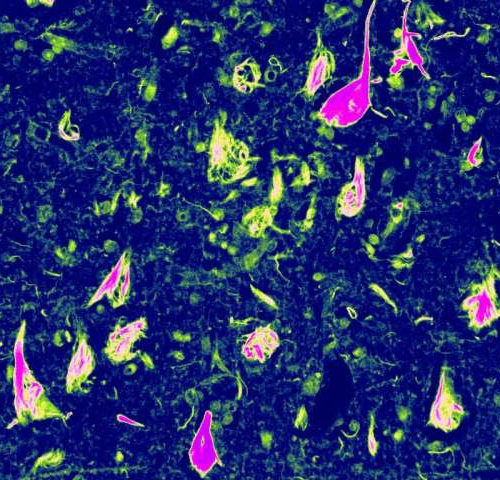by Johns Hopkins University Bloomberg School of Public Health Credit: CC0 Public Domain A new study led by researchers at the Johns Hopkins Bloomberg School of Public Health and the Federal Reserve Board of Governors found that Medicare beneficiaries who go on to be diagnosed with dementia are more likely to miss payments on bills as...
Tag: <span>Dementia</span>
Researchers find dementia starts much earlier than previously assumed
by Hildegard Kaulen, Universitaet Tübingen Alzheimer’s disease develops over decades. It begins with a fatal chain reaction in which masses of misfolded beta-amyloid proteins are produced that in the end literally flood the brain. Researchers including Mathias Jucker from the Hertie Institute for Clinical Brain Research (HIH) in Tübingen and the German Center for Neurodegenerative Diseases (DZNE) show in the...
Does forgetting a name or word mean that I have dementia?
Your medical team should determine whether you have dementia or just normal memory loss due to aging. The number of cases of dementia in the U.S. is rising as baby boomers age, raising questions for boomers themselves and also for their families, caregivers and society. Dementia, which is not technically a disease but a term for impaired ability...
Hard physical work significantly increases the risk of dementia
UNIVERSITY OF COPENHAGEN THE FACULTY OF HEALTH AND MEDICAL SCIENCES The muscles and joints are not the only parts of the body to be worn down by physical work. The brain and heart suffer too. A new study from the University of Copenhagen shows that people doing hard physical work have a 55-per cent higher...
Gut hormone blocks brain cell formation and is linked to Parkinson’s dementia
SWANSEA UNIVERSITY A gut hormone, ghrelin, is a key regulator of new nerve cells in the adult brain, a Swansea-led research team has discovered. It could help pave the way for new drugs to treat dementia in patients with Parkinson’s Disease. Blood-borne factors such as hormones regulate the process of brain cell formation – known as neurogenesis...
Lack of interest linked with increased risk of dementia
by Alzheimers Research UK Research published in the journal Neurology suggests those who lack interest in the world around them are at an increased risk of developing dementia. The research team looked to see whether developing dementia was linked to apathy. People with apathy often have a lack of interest in the world around them, with signs...
Researchers discover a rare genetic form of dementia
by Perelman School of Medicine at the University of Pennsylvania Abnormal neurofibrillary tangles (NFTs) — a buildup of tau protein in parts of the brain — helped Edward Lee, MD, PhD, an assistant professor of Pathology and Laboratory Medicine, and other Penn Medicine scientists uncover this new form of dementia. Credit: Edward Lee A new, rare...
People with PTSD are facing hugely increased risk of dementia
As society ages, we have more and more people living with dementia. It is an incurable disease and we are sort of accepting it as a sad part of life. Your lifestyle, genes and some other factors influence the risk of dementia. And the goal for you is to reduce that risk. Now scientists at...
Drug for common liver condition may be an effective treatment for dementia
UNIVERSITY OF YORK A drug used to treat cirrhosis of the liver may be an effective treatment for a form of Dementia and motorneuron disease, scientists have discovered. The research, led by the University of York in collaboration with the University of Sheffield, used brain cells from fruit flies and rats to model the neurodegeneration...
Does forgetting a name or word mean that I have dementia?
The number of cases of dementia in the U.S. is rising as baby boomers age, raising questions for boomers themselves and also for their families, caregivers and society. Dementia, which is not technically a disease, but a term for impaired ability to think, remember or make decisions, is one of the most feared impairments of...







